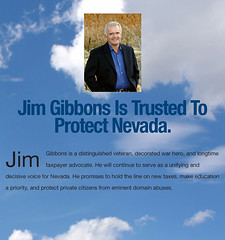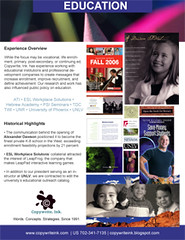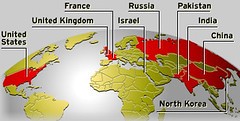The most convenient and abused communication method, e-mail, turned 35 years old today. The very first text message was forgettable, QWERTYUIOP or something similar, IT programmer Ray Tomlinson told The Sun reporter Josh Burt.
But it didn't take long before people became more inventive, writing e-mails they would never pen on paper. Burt includes five of the most famous cases in his commentary: Cringe! Worst e-mails ever.
• In 2000, Claire Swires sent a saucy note to her boyfriend while working at the London law firm Norton Rose. Her boyfriend forwarded it to a few of his closest friends, which turned Swires into a global talking point.
• Lucy Gao, who worked for Citigroup, demanded via e-mail that her 39 guests adhere to numerous ridiculous demands, including what time she would accept gifts and cards for her birthday.
• Joseph Dobbie spilled his heart out to a pretty girl over e-mail, blissfully unaware that his warm words to Kate Winsall would be forwarded to the entire world.
• Richard Phillips left his job as a senior associate with the world's biggest law firm, Baker & McKenzie, after he demanded a secretary, Jenny Amner, pay £4 to dry clean his ketchup stained pants. Amner replied to his e-mail, which she cc'ed to all 250 members of their staff: "I must apologize for not getting back to you straight away but due to my mother's sudden illness, death and funeral I have more pressing issues than your £4."
• Trevor Luxton, a clerk at Credit Lyonnais, made a big mistake when he thought he'd boast about his cheating ways over e-mail, calling himself the worst boyfriend in the world. Presumably his friends agreed, forwarding his e-mail until the entire world knew too.
Burt left off a similar story, where an executive stationed overseas boasted about using his expense account to rob the company blind. His e-mail's final destination was The Wall Street Journal, which underpins the point I always share with public relations students — never write an electronic message that you wouldn't be proud to see published in The Wall Street Journal. One day, it just might be, even if you wrote it years ago.
But it didn't take long before people became more inventive, writing e-mails they would never pen on paper. Burt includes five of the most famous cases in his commentary: Cringe! Worst e-mails ever.
• In 2000, Claire Swires sent a saucy note to her boyfriend while working at the London law firm Norton Rose. Her boyfriend forwarded it to a few of his closest friends, which turned Swires into a global talking point.
• Lucy Gao, who worked for Citigroup, demanded via e-mail that her 39 guests adhere to numerous ridiculous demands, including what time she would accept gifts and cards for her birthday.
• Joseph Dobbie spilled his heart out to a pretty girl over e-mail, blissfully unaware that his warm words to Kate Winsall would be forwarded to the entire world.
• Richard Phillips left his job as a senior associate with the world's biggest law firm, Baker & McKenzie, after he demanded a secretary, Jenny Amner, pay £4 to dry clean his ketchup stained pants. Amner replied to his e-mail, which she cc'ed to all 250 members of their staff: "I must apologize for not getting back to you straight away but due to my mother's sudden illness, death and funeral I have more pressing issues than your £4."
• Trevor Luxton, a clerk at Credit Lyonnais, made a big mistake when he thought he'd boast about his cheating ways over e-mail, calling himself the worst boyfriend in the world. Presumably his friends agreed, forwarding his e-mail until the entire world knew too.
Burt left off a similar story, where an executive stationed overseas boasted about using his expense account to rob the company blind. His e-mail's final destination was The Wall Street Journal, which underpins the point I always share with public relations students — never write an electronic message that you wouldn't be proud to see published in The Wall Street Journal. One day, it just might be, even if you wrote it years ago.

























